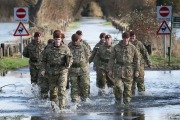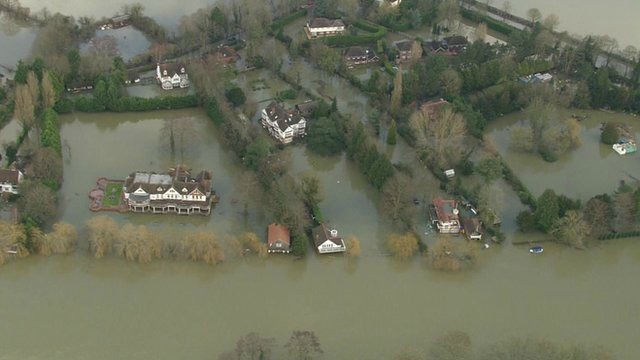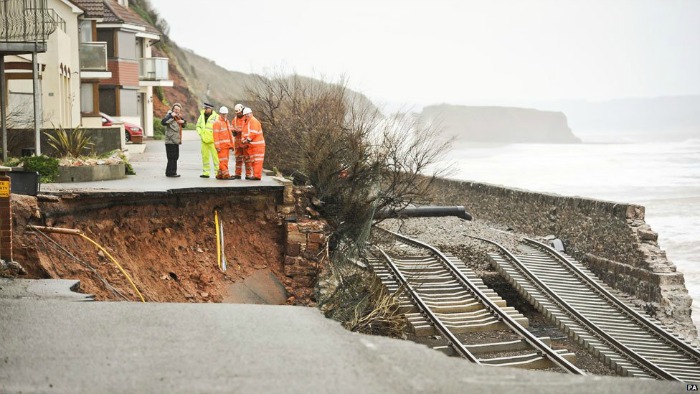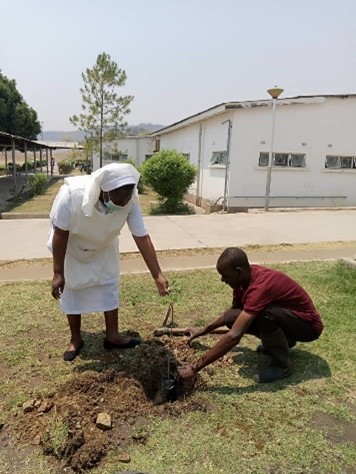
 It is not for the first time that extreme weather conditions have been felt in the UK over the past decade. Indeed we have had seasons of continuous and heavy snow, drought and heavy rain and floods. Each year seems to have brought a more extreme version of weather. What we got this winter surpassed any expectations in its severity and persistence.
It is not for the first time that extreme weather conditions have been felt in the UK over the past decade. Indeed we have had seasons of continuous and heavy snow, drought and heavy rain and floods. Each year seems to have brought a more extreme version of weather. What we got this winter surpassed any expectations in its severity and persistence.
This winter will primarily be marked by very heavy and prolonged rain, higher than usual winds and high tides. Inland whole farms disappeared under water as rivers burst their banks. The heavy rainfall over a period of time had caused the water table underground to fill and the ground itself had become so sodden that there was nowhere for the water above ground to go. It is now two months since this flooding occurred and the water remains on the land. Farmers have had to move their animals off the farms to other places of safety. Crops could not be saved.
Around our coastal areas rain, high winds and high tides combined on several separate occasions to cause much damage as the ferocious tides battered the coast in the south and north and south west showering the paths and buildings with debris from the sea, tearing roofs and other structures up and tossing them around while causing flooding to streets and homes which, in turn caused untold distress to inhabitants as many people had to evacuate their homes. At one point 240,000 homes were without power.
Citizens who are old enough to remember the war of 1939-45 and its effects on daily life in England say that the experience of the last month especially reminded them of those days when military, police, emergency services, and organisations like the Red Cross were everywhere to be found. This winter about ten thousand soldiers as well as every available member of the police force, emergency services, the council and the Red Cross joined local people in creating defences, rescuing people from their homes, aiding those who chose to remain despite the flooding in their houses and clearing up after yet another storm.
There were other hidden dangers as trees and structures, compromised by the continuous onslaught and undermined by the constant flow of water, gave way. Falling trees and parts of buildings caused deaths and injuries and destruction to cars and other property. Sinkholes suddenly appeared, evidence that the water underground is eroding the earth beneath our feet.
What is happening? Watching the monster waves smashing against the sea defences with great force it almost looked as though the sea was on the attack, venting its anger against a society which does not care about it. And in a way that’s not far from the truth. There is a consensus that our extreme weather is caused by climate change which is the result of human activity. The much-threatened changes as the planet heats up are actually happening, not only in the UK but in other parts of the world also.
Here in the UK there is much talk about how to manage the effects of future extreme weather as it now seems apparent that this will happen again. The government promises more defences against flooding. Building more and bigger walls may keep the torrent out for now but it looks as though there will be a need for ever bigger defences if that is to be our only response. Only recently have the basic questions begun to be asked: Why is this happening and how do we prevent it from happening again? Defence is one response but there are two other responses which can be made when one is under attack. You can turn on your assailant (not open to us, we can’t fight the sea, winds and rain) or you can seek to be reconciled. It is clearly no longer about preventing climate change but rather managing and, hopefully, reversing it. This can only happen if we change our behaviour and take a more responsible and caring approach to our planet, we need somehow to seek reconciliation with the earth. How this reconciliation can happen is one of the most fundamental questions and challenges of our day.









